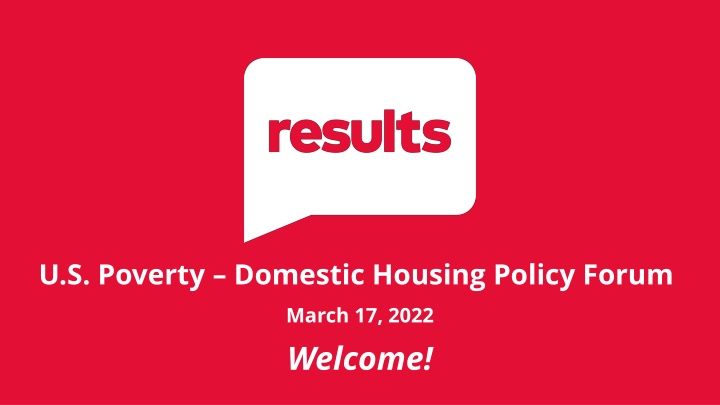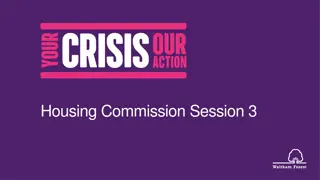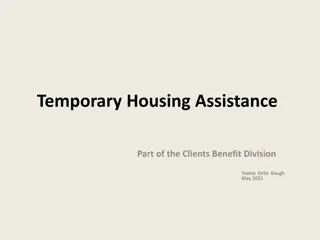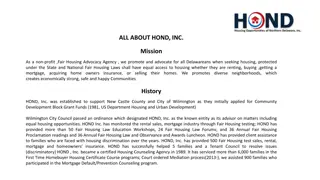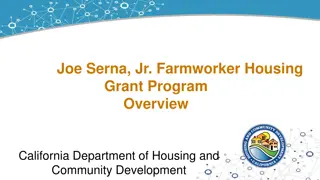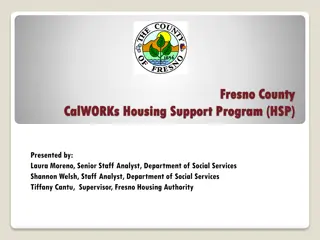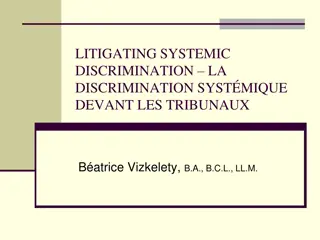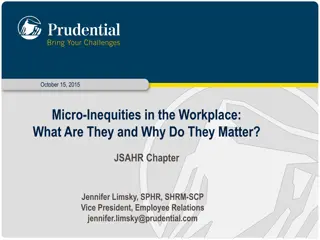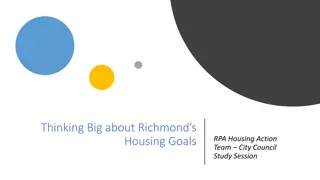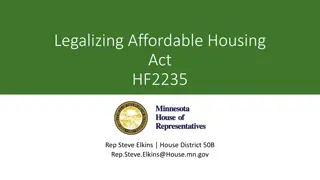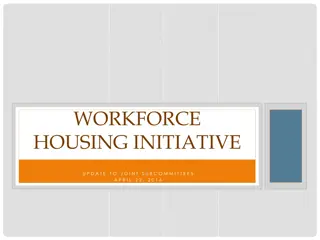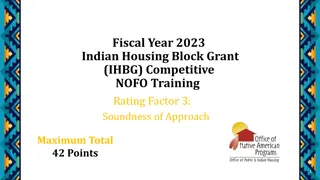Addressing Systemic Housing Inequities: A Call to Action
The U.S. Poverty Domestic Housing Policy Forum held on March 17, 2022, shed light on the deep-rooted oppression and discrimination impacting housing policies. The forum emphasized the importance of combating racism, classism, and other oppressions to effectively address poverty. It highlighted the disproportionate eviction rates faced by marginalized communities, especially Latino and African American mothers. The event stressed the historical discriminatory practices that have hindered African American homeownership and housing stability. The forum called for collective action to confront systemic housing inequities and strive for a more inclusive and equitable future.
Download Presentation

Please find below an Image/Link to download the presentation.
The content on the website is provided AS IS for your information and personal use only. It may not be sold, licensed, or shared on other websites without obtaining consent from the author.If you encounter any issues during the download, it is possible that the publisher has removed the file from their server.
You are allowed to download the files provided on this website for personal or commercial use, subject to the condition that they are used lawfully. All files are the property of their respective owners.
The content on the website is provided AS IS for your information and personal use only. It may not be sold, licensed, or shared on other websites without obtaining consent from the author.
E N D
Presentation Transcript
U.S. Poverty Domestic Housing Policy Forum March 17, 2022 Welcome!
2 RESULTS Anti-Oppression Values RESULTS is a movement of passionate, committed everyday people. Together we use our voices to influence political decisions that will bring an end to poverty. Poverty cannot end as long as oppression exists. We commit to opposing all forms of oppression, including racism, classism, colonialism, white saviorism, sexism, homophobia, transphobia, ableism, xenophobia, and religious discrimination. At RESULTS we pledge to create space for all voices, including those of us who are currently experiencing poverty. We will address oppressive behavior in our interactions, families, communities, work, and world. Our strength is rooted in our diversity of experiences, not in our assumptions. With unearned privilege comes the responsibility to act so the burden to educate and change doesn t fall solely on those experiencing oppression. When we miss the mark on our values, we will acknowledge our mistake, seek forgiveness, learn, and work together as a community to pursue equity. There are no saviors only partners, advocates, and allies. We agree to help make the RESULTS movement a respectful, inclusive space. Find all our anti-oppression resources at: https://results.org/volunteers/anti-oppression/ Fill out survey: https://bit.ly/3ar0gDt
5 The face of the eviction epidemic is moms with kids, especially poor moms from predominantly Latino and African American neighborhoods. While the crisis reaches across race, income, and geography, communities of color have been hit the hardest.
6 Historic discriminatory housing policies have encouraged white homeownership and have simultaneously created obstacles for African American homeownership and housing stability. From Campaign to Reduce Evictions. From the theft of indigenous land, the enslavement and exploitation of Africans, the denial of land ownership to black and other communities of color, the creation of federal backed GSEs to support white & suburban homeownership while redlining and disinvesting from entire communities of color, to predatory lending, the destruction of public housing and gentrification of historically black and brown neighborhoods, white supremacist ideology has shaped land & housing policy for centuries. From Yvette Norton of Miami Workers Center at #HFASouth (Right to the City).
10 Once again, one truth that black homeowners have a higher net worth than black renters doesn t yield a simple prescription for a wealth-gap relief. Any proposal that only focuses on increasing black homeownership fails to take into account how fraught the issue can be for black families. . . . Increasing access to a system designed to build white wealth will ultimately not work to build black wealth. - Professor Dorothy Brown
11 Housing Justice Racial Justice Gender Justice Economic Justice Education Justice Health / Disability Justice
29 Keep Fighting for Rental Assistance Rise in wages have not in pace with rents going up. Supply being built for higher end of the market. Only 1 in 4 eligible get federal housing assistance, with many enduring long waits. Temporary rental assistance, underinvestment = long-term housing investment. Evictions (and its harmful consequences) are ongoing & expected to rise. Pandemic & housing crisis disproportionately impacted communities of color & other historically disadvantaged communities /
@RESULTS_Tweets /RESULTSEdFund www.results.org @voices4results
